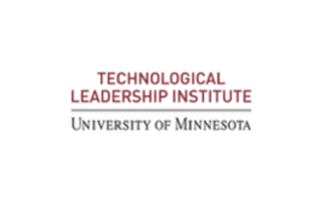This course provides an introduction to some additional process techniques critical to the microfabrication process flow. Learners will be able to explain how the electroplating process produces coatings on devices, including some specific considerations for magnetic materials. Device packaging, testing, and other back-end-of-line (BEOL) processes will be introduced and discussed.

Additional Process Techniques in Microfabrication

Additional Process Techniques in Microfabrication
This course is part of Introduction to Semiconductor and MEMS Fabrication Specialization


Instructors: Rama Prasad
Included with
Recommended experience
Skills you'll gain
Details to know

Add to your LinkedIn profile
10 assignments
See how employees at top companies are mastering in-demand skills

Build your subject-matter expertise
- Learn new concepts from industry experts
- Gain a foundational understanding of a subject or tool
- Develop job-relevant skills with hands-on projects
- Earn a shareable career certificate

There are 4 modules in this course
In this module, we present some of the fundamental principles and considerations for the electrodeposition of materials. You will learn some basic electrochemical principles that are foundational to understanding the electroplating process. We will discuss some of the physical phenomena and bath constituents that impact electrodeposition and how they can be controlled. Lastly, we will walk through the process flow for copper electroplating commonly used in the semiconductor industry.
What's included
3 videos2 readings3 assignments
Unique considerations for the electrodeposition of magnetic materials are discussed. The deposition of magnetic materials is one of the key drivers to innovation and development of electrodeposition in the microfabrication ecosystem. You will learn some relevant magnetic properties and the distinction between hard and soft magnetic materials. We then discuss key alloy systems commonly deposited for these applications and learn how to work with ternary diagrams. The module concludes with deposition techniques and parameters of interest for magnetic materials and discussion on the continued work to develop and improve upon this unique fabrication process.
What's included
3 videos2 readings3 assignments
This module introduces the Back End of the Line assembly process steps of wafer test, chip singulation, chip packaging, and final package test. Test types during various phases of process development and different test variables for IC and MEMS device types are presented. Chip packaging technology evolution over the years is covered. Product requirements drive the IC chip packaging technology development. A few types of MEMS device packaging are touched upon.
What's included
2 videos4 readings2 assignments1 plugin
This module covers metrology, inspection, and characterization of micro device chips like MEMS, and IC chips. Metrology is presented from the production flow perspective where quality control, yield, and cycle time are critical. Working principle and metrology equipment architecture are presented for the mostly widely used tools like high magnification optical microscopes and SEMs.
What's included
2 videos5 readings2 assignments
Earn a career certificate
Add this credential to your LinkedIn profile, resume, or CV. Share it on social media and in your performance review.
Offered by
Explore more from Electrical Engineering
 Status: Free Trial
Status: Free TrialUniversity of Minnesota
 Status: Free Trial
Status: Free TrialUniversity of Minnesota
 Status: Free Trial
Status: Free TrialUniversity of Minnesota
 Status: Free Trial
Status: Free TrialUniversity of Minnesota
Why people choose Coursera for their career

Felipe M.

Jennifer J.

Larry W.

Chaitanya A.

Open new doors with Coursera Plus
Unlimited access to 10,000+ world-class courses, hands-on projects, and job-ready certificate programs - all included in your subscription
Advance your career with an online degree
Earn a degree from world-class universities - 100% online
Join over 3,400 global companies that choose Coursera for Business
Upskill your employees to excel in the digital economy
Frequently asked questions
To access the course materials, assignments and to earn a Certificate, you will need to purchase the Certificate experience when you enroll in a course. You can try a Free Trial instead, or apply for Financial Aid. The course may offer 'Full Course, No Certificate' instead. This option lets you see all course materials, submit required assessments, and get a final grade. This also means that you will not be able to purchase a Certificate experience.
When you enroll in the course, you get access to all of the courses in the Specialization, and you earn a certificate when you complete the work. Your electronic Certificate will be added to your Accomplishments page - from there, you can print your Certificate or add it to your LinkedIn profile.
Yes. In select learning programs, you can apply for financial aid or a scholarship if you can’t afford the enrollment fee. If fin aid or scholarship is available for your learning program selection, you’ll find a link to apply on the description page.
More questions
Financial aid available,

